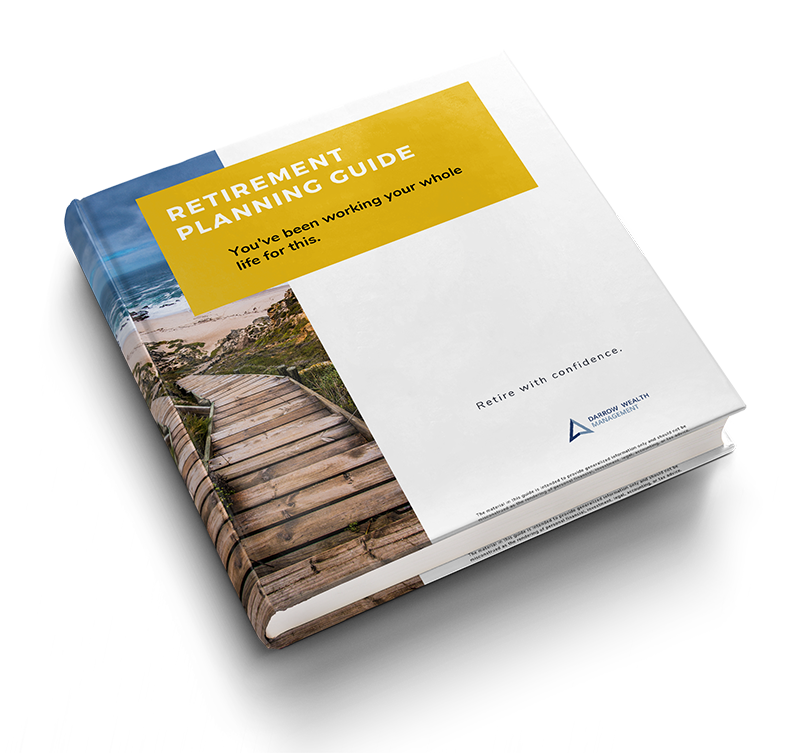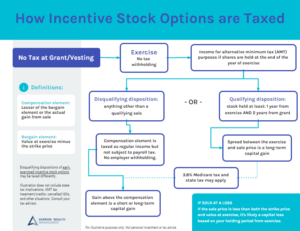What are the best strategies to build wealth and a comfortable lifestyle for you and your loved ones? The answer isn’t sexy or complicated. The best way to build wealth and create financial security for you and your family is no secret. It is accomplished through an ongoing commitment to saving, focusing on what you can control, and not tying up a large part of your net worth in one asset. In the last ten years alone, there are countless examples to illustrate why these prudent methods of building wealth work, and why other means often fail.
Financial impacts of disruptive technology
Many of us love innovation. It can make our lives easier, and put price pressure on products and services we use every day. But what happens when you find yourself on the “wrong” side of innovation? Since Uber launched in 2009, the value of taxi medallions have dropped significantly across the country. What was once considered an asset to fund college or retirement, is now an “underwater” asset for many drivers who borrowed against it.
As the hospitality industry continues to wage war against companies like Airbnb, we should all be cognizant that the innovation economy could show up at your door one day. Individuals and families who have been saving and investing diligently over the years will be much better equipped to respond to this type of change, especially those who maintain a diversified portfolio of assets.
The takeaway: While we can’t control what types of innovations may have a negative impact on us financially, we do have some control over the extent of the damage. By holding a diversified global portfolio of liquid investments like stocks and bonds and avoiding a concentration in any one asset (e.g. real estate, company stock), you will be much better equipped to handle future unknowns.
The changing landscape of employer benefits
Remember when people had pensions? According to Towers Watson, between 1998 and 2015, the percentage of Fortune 500 companies still offering a traditional defined benefit pension plan to most new employees fell from around 50% to 5%. Between 2008 and 2015, 39% of firms have frozen their pension plan (meaning some or all benefits stop accruing for some or all current participants). The reduction or elimination of benefits is undoubtedly a financial blow for many individuals, but most acutely so for those who may not have been simultaneously self-funding their own retirement.
During this time, companies transitioned their defined benefit pension plans to a defined contribution plan, such as the 401(k). Defined contribution plans like a 401(k) or a 403(b) shift the onus from the employer to the employee to adequately fund and appropriately invest the assets for retirement. Although many employers offer some type of matching or profit-sharing contribution, most plans are designed to give the employer flexibility should they no longer wish to provide this benefit.
As time passes, we may find other benefits changing or disappearing. With the rising costs of healthcare, employers may seek to reduce the percentage of the annual premiums they are willing to cover. Even though the Affordable Care Act (ACA) was not reversed in 2017, it doesn’t mean that there won’t be any future legislative changes impacting healthcare or the requirements for employers to offer health insurance coverage to employees.
The takeaway: As an employee, (legal) changes to your employer-sponsored benefit package may be out of your control. For some, it may be best to take your talents to another firm, but that isn’t a viable option in all situations. Having financial liquid resources outside of your employer can provide flexibility and a way to help offset the risk that changes to your benefit package will derail your financial plan.
Diversification means risk management
If diversification is a tool to help manage your exposure to financial risk, then a concentrated stock position is essentially a kind of Trojan horse. By holding a diversified portfolio of investments and assets that aren’t perfectly correlated, you’re more likely to achieve sustainable growth over the long-term while mitigating your risk (and losses) through over-exposure to any one asset. In general, one asset or asset class should not equal more than 10% of your overall net worth.
On the other hand, an asset concentrated in any one stock or asset class (e.g. cash, real estate, gold) effectively undermines the principles of diversification. Recall the cab driver counting on selling his taxi medallion to fund his retirement.
There are a number of ways individuals can inadvertently undermine their diversification objectives. Here are some of the most common:
- Holding too much stock in your employer, which is particularly common for investors receiving stock options or equity awards like RSUs
- Investing a portion of your 401(k) retirement plan in company stock, which can have a devastating impact on your retirement savings (just ask a former RadioShack employee)
- Buying too much house, over-leveraging your home’s equity, or over-investing in real estate investment properties. Real estate is notoriously illiquid, cash-intensive, and volatile.
- Keeping too much cash, which will yield a real negative return (after inflation and taxes) in today’s low interest rate environment
Holding a concentrated stock position with the expectation of big gains in the future is a risky proposition when it comprises a significant portion of your net worth. To the extent that you are unable to sell some of your concentrated asset (for example, it may be unrealistic to sell your house or perhaps you hold stock at a private company without a secondary market), you can still reduce your exposure by saving and investing more in your other assets, such as an individual brokerage account. Over time, as your diversified assets grow, the relative value of a concentrated holding should diminish as a percentage of your overall net worth.
The takeaway: Rather than roll the dice on the real estate market or the future of your employer’s stock price, take control of your financial situation and develop a strategy to liquidate concentrated holdings and diversify the proceeds in other asset classes when possible.
Legislative Tax and Policy Changes
As of the writing of this article, Washington nears closer to an agreement on tax reform. No matter what the final plan entails, it is important for investors to remember that many elements once considered cornerstones of the current tax framework have been on the table during recent negotiations. At the beginning, even pre-tax contributions to retirement accounts were called into question.
Some of the potential changes which seem to have survived the revisions, such as the repeal of the state and local income tax deduction (SALT), repeal of property tax deduction, changes to the gain exclusion on the sale of a primary residence, and other unfavorable changes to the tax treatment of stock options, could have a significant impact on an individual’s financial strategy.
The takeaway: The lesson here is not to over-emphasize the role taxes play in the development of your financial plan. While tax consequences are an important component of your financial decisions, you don’t want to let the tax-tail wag the dog. The dangers of letting tax-related factors drive long-term financial decisions are that the tax code is subject to change and largely out of an individual’s control.
The future of entitlement programs
How far we can ultimately keep kicking the proverbial can when it comes to entitlement programs like Social Security, Medicare, Medicaid, and other social programs is unknown. As of now, without modification, the Social Security trust funds (one for retirement and another for disability insurance) are expected to be depleted in the early-to-mid 2030s. Once the trust funds are gone, Social Security can no longer make benefit payments in excess of the revenue generated through payroll deductions.
What does this mean for people currently receiving benefits or those expecting to? Although the exact impact remains to be seen, experts expect all benefits to be reduced by 25%.
There are a few things we do know. It is very unlikely that the Social Security program can survive without either reducing the benefits individuals receive or increasing payroll taxes or other general revenue taxes to provide additional funding to the program.
The takeaway: Entitlement programs have long been a hot-button issue in America. No matter where you stand on the issue, the best way to have your voice heard is by participating in the democratic process, especially state and local elections where turnout tends to suffer. While you cannot control with absolute certainty how much Social Security income you can rely on, you can control how it impacts your financial situation. Assuming that most of your financial goals will be self-funded is one such way to overcome external factors and gain financial independence.
Achieving financial independence
Being financially independent doesn’t happen overnight (unless you’ve won the lottery). It generally requires years of living within your means, keeping fixed expenses in check, maxing out your retirement plan, and saving and investing the majority of what’s left. This is not to say that you cannot – or should not – enjoy your success. But every household has a different level of lifestyle spending that can be supported by their income.
Achieving financial independence is liberating for many investors. It doesn’t mean you no longer need to work, invest, or save. What it means to us is that changes from external or outside forces are unlikely to derail your goals or lifestyle over the long-term. But by focusing on the elements that are within your control, you’re able to eliminate much of the risk and uncertainty in your financial life. We cannot control the financial markets, but we can decide how we choose to invest. A broad-based globally diversified portfolio reduces your exposure to any one asset class, industry, company, or region.
To learn more about how Darrow Wealth Management can work to help you achieve your own financial independence, contact us today.











